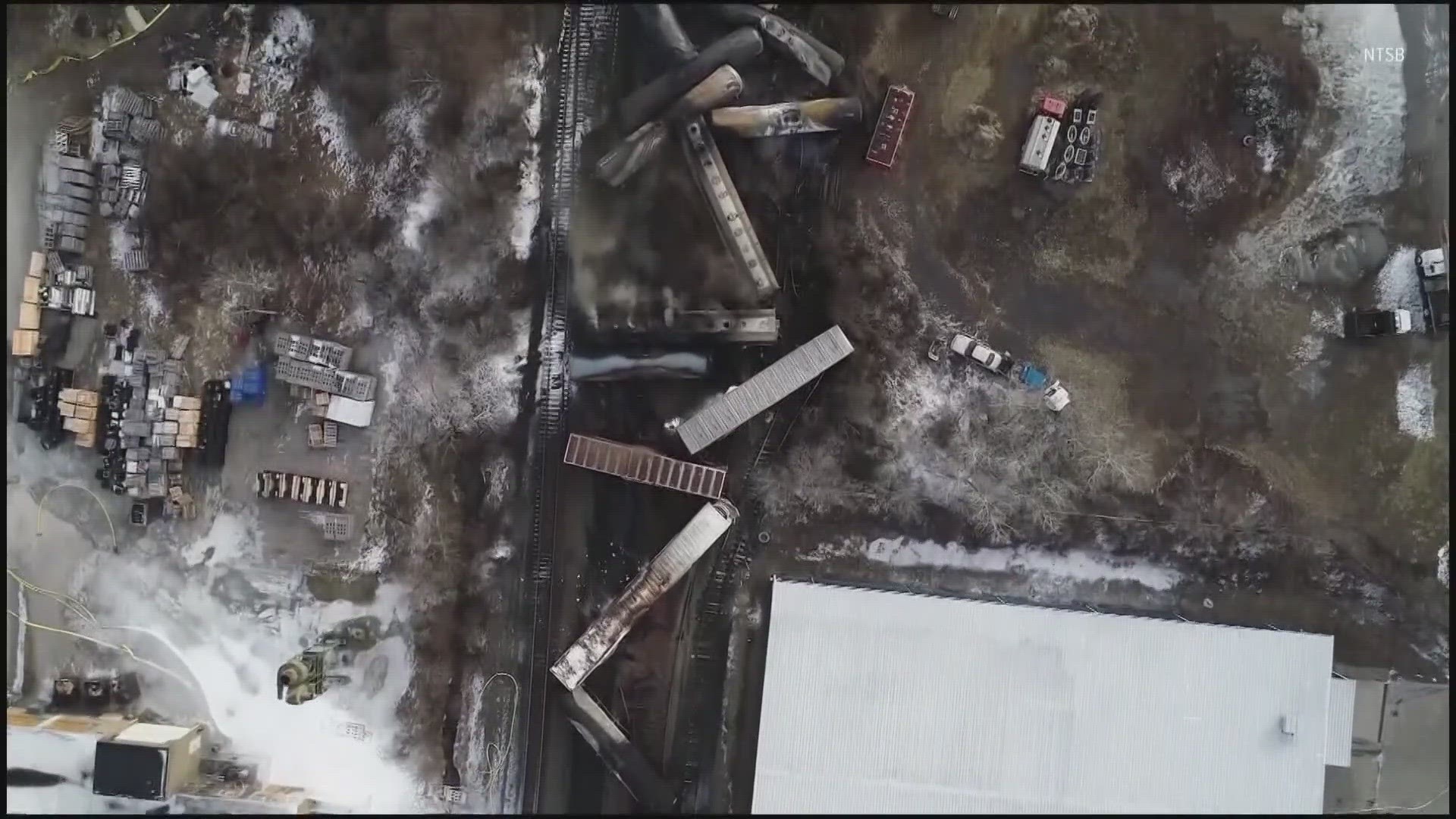COLUMBUS, Ohio — Exactly two months after a Norfolk Southern train derailed carrying toxic chemicals in East Palestine, concerns over the potential for long-term health impacts remain a concern for those who live there.
On Monday, Ohio’s U.S. Senators Sherrod Brown and JD Vance – along with Pennsylvania’s two U.S. Senators Bob Casey and John Fetterman – have drafted a letter to the National Institute of Health – and the National Institute of Environmental Health Sciences – to extend its response to the area and provide additional resources and research into the short-term and long-term health effects associated with the disaster.
The Norfolk Southern train derailed in East Palestine on February spilling harmful chemicals like vinyl chloride. And additional controlled burn of chemicals prompted an evacuation.
Residents have since complained about ailments such as headaches, rashes, burning lips and eyes and breathing issues.
The senators’ urged the NIH in their letter to help identify or assess:
- Scientific methodologies to best assess the short- and long-term health impacts of this man-made disaster;
- Best practices for assessing human exposures and the associated health risks that can be applied to this crisis, possibly including geospatial analysis of the contaminated waterways and the plume, as well as an enumeration and census of the affected population;
- Co-creation of a research strategy with community partners to ensure robust community involvement in addressing their concerns;
- How to ensure residents can be provided with a return of results and a right to release bio-specimens to testing laboratories for the purposes of, e.g., litigation;
- Partner with other federal, state, and local entities at all stages.
Government officials and the rail company, Norfolk Southern, have continued to point to tests that show the air and water are safe.
But just last week, the CDC told 10 Investigates that several of its employees conducting health surveys in east Palestine fell ill in early March. Their symptoms appeared to mirror many of the same complaints of East Palestine residents.
On Monday, 10 Investigates spoke to Charisse Munyon, a mom of two, who told us her family has experienced mild symptoms similar to what others have described including headaches, coughs and burning eyes. She said she feels frustrated and torn over what to do, as other friends have chosen to the leave the town in wake of the derailment.
She said she worries about the potential for long-term health risks but is also trying to balance a return to normal life.
“I mean, of course, cancer is a huge concern, because that's the word that keeps getting thrown around that in 10 years for kids to be diagnosed with cancer, and that's terrifying. But also it's terrifying to me to uproot my family and move somewhere else my kids have both been here since they were in preschool. So like, I feel like I'm damned if I do damned if I don't like, if I keep my kids here, there's a chance they can get cancer but if I leave, am I leaving my home that I've been in for the past 10 years with my kids? For something that I didn't have to uproot my lives for,” Munyon told 10 Investigates’ Chief Investigative Reporter Bennett Haeberle.
To date, Norfolk Southern says it continues its work at the cleanup site removing 14,000 tons of contaminated soil,
The governor’s office says about 20,000 tons remains on site.
The frustration for residents remains not knowing how long cleanup will take and what to expect years from now.
On Tuesday, a more permanent health clinic is expected to open in East Palestine.

